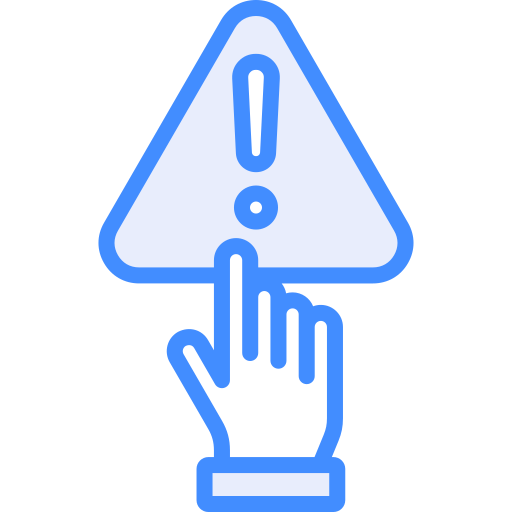Payday Lenders in Pennsylvania
Payday Loan Laws

Loan Terms and Conditions
prohibited
Whenever you need emergency financing, you can get loans online from a legit lending companies. Check your rates and terms before applying for cash advance online.
History of Pennsylvania Payday Loans
How to file a complaint
- ADDRESS
- 17 N. 2nd Street, Harrisburg, PA 17101
- 800-600-0007
- Website
Pennsylvania Loan Debt Relief
How to Get out of Loan Debt?
Types of Quick Loans in Pennsylvania
Alternatives to Payday Loans in Pennsylvania
Personal Loans
Personal loans are a popular choice among borrowers in Pennsylvania, offering unsecured financing for various purposes such as home improvements, debt consolidation, and unexpected expenses. They have fixed interest rates and predictable monthly payments. Lenders in Pennsylvania may provide more favorable terms and lower interest rates to borrowers with excellent credit, while individuals with poor credit may face higher interest rates and stricter eligibility criteria.
Bridge Loans
Bridge loans serve as a short-term financing solution for many individuals in Pennsylvania who are looking to purchase a new property while still owning their current one. These loans are particularly useful when conventional loans are not readily available or when borrowers need immediate access to funds. Lenders typically require an equity interest in the property and may limit the loan-to-value ratio to around 80%. To qualify for a bridge loan, borrowers must demonstrate their ability to close the sale or secure a conventional loan within a specific timeframe, typically four months or less. Bridge loans, categorized as specialty financing, are intended to be repaid within a relatively short period, usually ranging from one to three years.
Home Equity Loans
Home equity loans in Pennsylvania enable homeowners to leverage the equity in their properties to access funds. These secured loans come with a fixed interest rate and predetermined repayment period, utilizing the home as collateral. Home equity loans can be utilized for various purposes, such as covering unexpected expenses, consolidating debt, or making home improvements. While they may offer potential tax benefits, it's important to note that defaulting on these loans could result in foreclosure if repayment obligations are not met.
Bad Credit Loans in Pennsylvania
Individuals in Pennsylvania with poor credit or limited credit history may have access to bad credit loans, which are tailored to high-risk borrowers. These loans typically come with higher interest rates and additional fees compared to traditional loans. Collateral or a co-signer may be required to mitigate the higher risk associated with these borrowers. Despite the challenges, bad credit loans can be utilized for debt consolidation, home repairs, or unexpected expenses, providing an opportunity to rebuild creditworthiness over time.
Pennsylvania Small Business Loans
Small business loan options in Pennsylvania:
- SBA loans: The SBA offers a variety of loan programs, including 7(a) loans, 504 loans, and microloans, to help small businesses access funding for things like, such as working capital, equipment purchases, and real estate investments.
- Pennsylvania First Program: This program offers low-interest loans and lines of credit to businesses for land and building acquisition, construction, renovation, and equipment purchases. It focuses on job creation and retention in Pennsylvania.
- Keystone Innovation Zone (KIZ) Tax Credit Program: The KIZ program provides tax credits to early-stage technology-based companies located in designated zones in Pennsylvania. These tax credits can be used to offset certain state taxes, including the corporate net income tax.
- Business Lines of Credit: Lines of credit provide businesses with a revolving credit line that can be used as needed. They offer flexibility and convenience, allowing businesses to access funds whenever necessary and repay only the amount used.
- Equipment Financing: Equipment financing enables businesses to purchase or lease equipment required for their operations. Lenders provide funding specifically for equipment, using the equipment itself as collateral.
VA loans in Pennsylvania
VA loans are a valuable financing option available to veterans and active-duty service members in Pennsylvania. These loans, guaranteed by the U.S. Department of Veterans Affairs, are offered by private lenders and come with various advantages. VA loans often require little to no down payment, making homeownership more attainable for those who may face financial constraints. They also typically do not require mortgage insurance and often come with lower interest rates. The flexible credit requirements of VA loans enhance eligibility for veterans and active-duty service members, ensuring accessibility to financing opportunities.
Pennsylvania Student Loans
Many options are available to Pennsylvania students to help finance their college education. These options include:
- Federal Student Loans: Low-interest loans backed by the federal government that can be used to pay for education expenses.
- Pennsylvania Higher Education Assistance Agency (PHEAA) Loans: PHEAA offers several loan programs, including the PA Forward Student Loan Program and the KeystoneHELP Student Loan Program. These loans are available to Pennsylvania residents attending eligible colleges and universities.
- Pennsylvania State Grant: The Pennsylvania State Grant program provides need-based financial aid to Pennsylvania residents who demonstrate financial need. These grants do not require repayment and can be used for tuition and other educational expenses at eligible colleges, universities, and career schools.
- Private Student Loans: Loans offered by private lenders that can be used to pay for education expenses, with interest rates and terms that can vary widely.
Pennsylvania Income Information
United States Census Bureau. “Poverty in the United States: 2021.” Accessed on May 12, 2023.
United States Census Bureau. U.S. Census Bureau QuickFacts: Pennsylvania. Accessed on May 12, 2023.
Pennsylvania Payday Lender Complaints
| Company Name | Count |
| GVA Holdings, LLC | 36 |
| PNC Bank N.A. | 27 |
| Delbert Services | 19 |
| LDF Holdings, LLC | 15 |
| Green Trust Cash, LLC | 15 |
| Mobiloans, LLC | 14 |
| Total Complaints | 319 |
Consumer Financial Protection Bureau. Consumer Complaint Database. Accessed on May 12, 2023.
Most Common Issues
| Complaint type | Count |
| Charged Unexpected fees or interest | 120 |
| Can’t contact lender | 59 |
| Struggling to pay loan | 35 |
| Received a loan didn’t apply for | 27 |
| Applied for a loan but never received | 13 |
What are the main reasons Americans apply for payday cash advance online or offline
Payday loans are typically used for nonnegotiable everyday expenses like your rent, utilities, and groceries. Per data reported by Pewtrust, the percentage of reasons described below
| Reason | Share |
| Regular Expenses (Utilities, car payment) | 53% |
| Unexpected emergency/expense | 16% |
| Rent/Mortgage | 10% |
| Something Special | 8% |
| Other | 5% |
| Did not answer | 2% |
Payday Lenders by City
- Philadelphia
- Pittsburgh
- Allentown
- Erie
- Reading city
- Upper Darby
- Scranton
- Lower Merion
- Bensalem
- Abington
- Lancaster city
- Bethlehem city
- Bristol township
- Millcreek township
- Lower Paxton
- Haverford
- Harrisburg
- Middletown township
- York city
- Altoona
- Wilkes-Barre city
- Manheim township
- Hempfield township
- Penn Hills
- State College
- Northampton township
- Cheltenham
- Norristown
- Falls township
- Mount Lebanon



